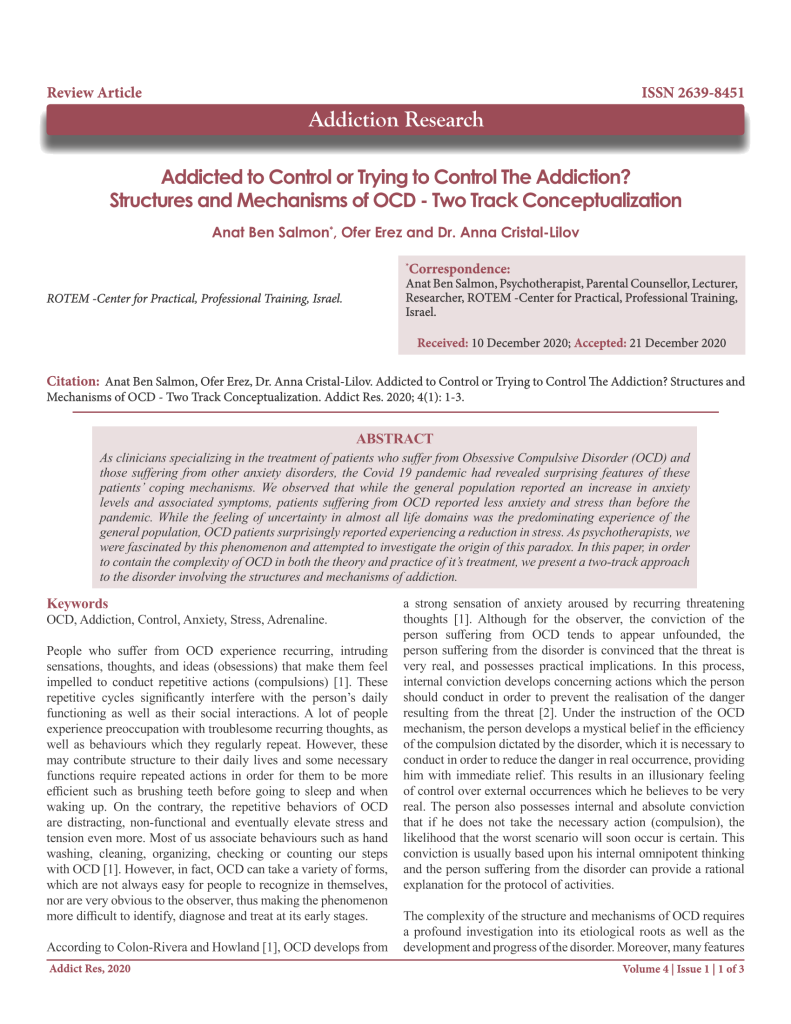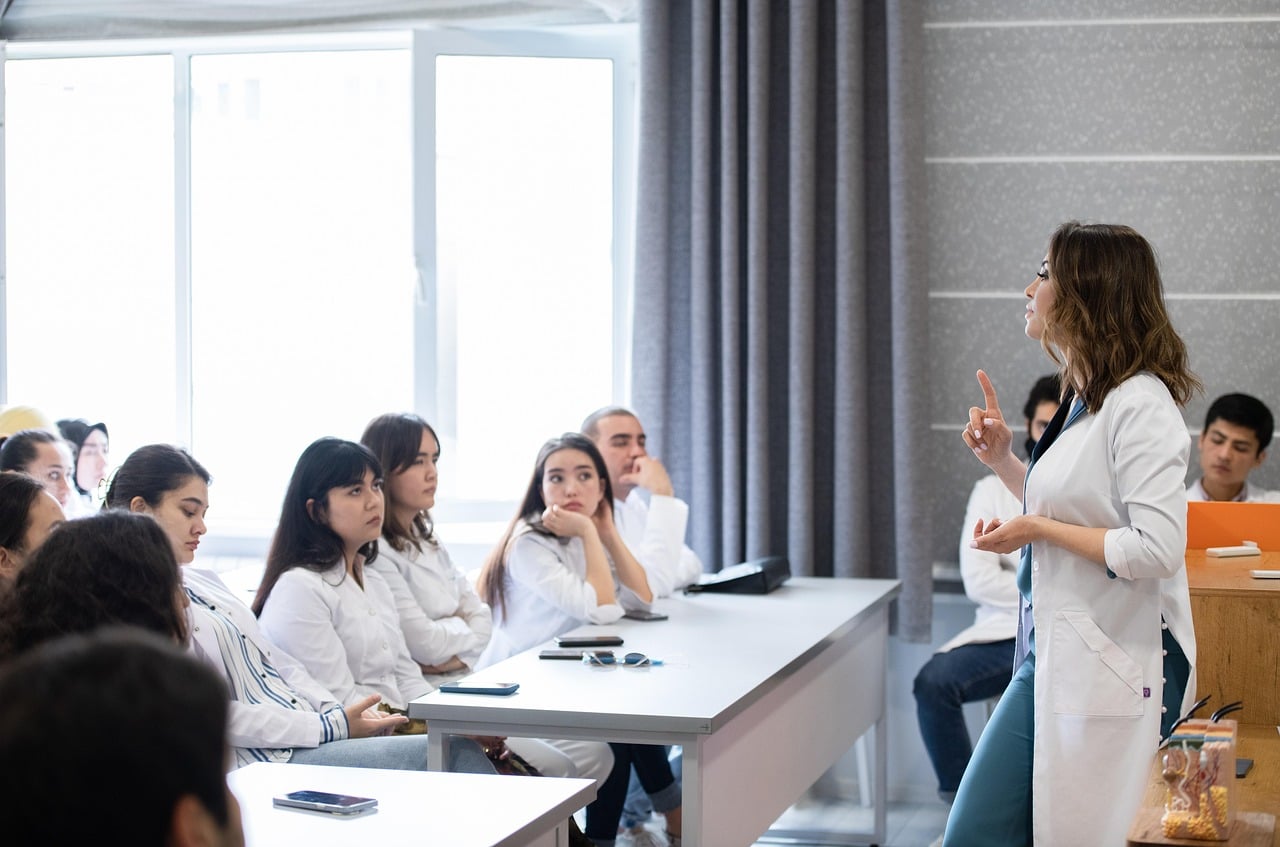Structures and Mechanisms of OCD
Two Track Conceptualization
ABSTRACT
As clinicians specializing in the treatment of patients who suffer from Obsessive-Compulsive Disorder (OCD) and those suffering from other anxiety disorders, the Covid 19 pandemic had revealed surprising features of these patients’ coping mechanisms. We observed that while the general population reported an increase in anxiety levels and associated symptoms, patients suffering from OCD reported less anxiety and stress than before the pandemic. While the feeling of uncertainty in almost all life domains was the predominating experience of the general population, OCD patients surprisingly reported experiencing a reduction in stress. As psychotherapists, we were fascinated by this phenomenon and attempted to investigate the origin of this paradox. In this paper, in order to contain the complexity of OCD in both the theory and practice of its treatment, we present a two-track approach to the disorder involving the structures and mechanisms of addiction.





